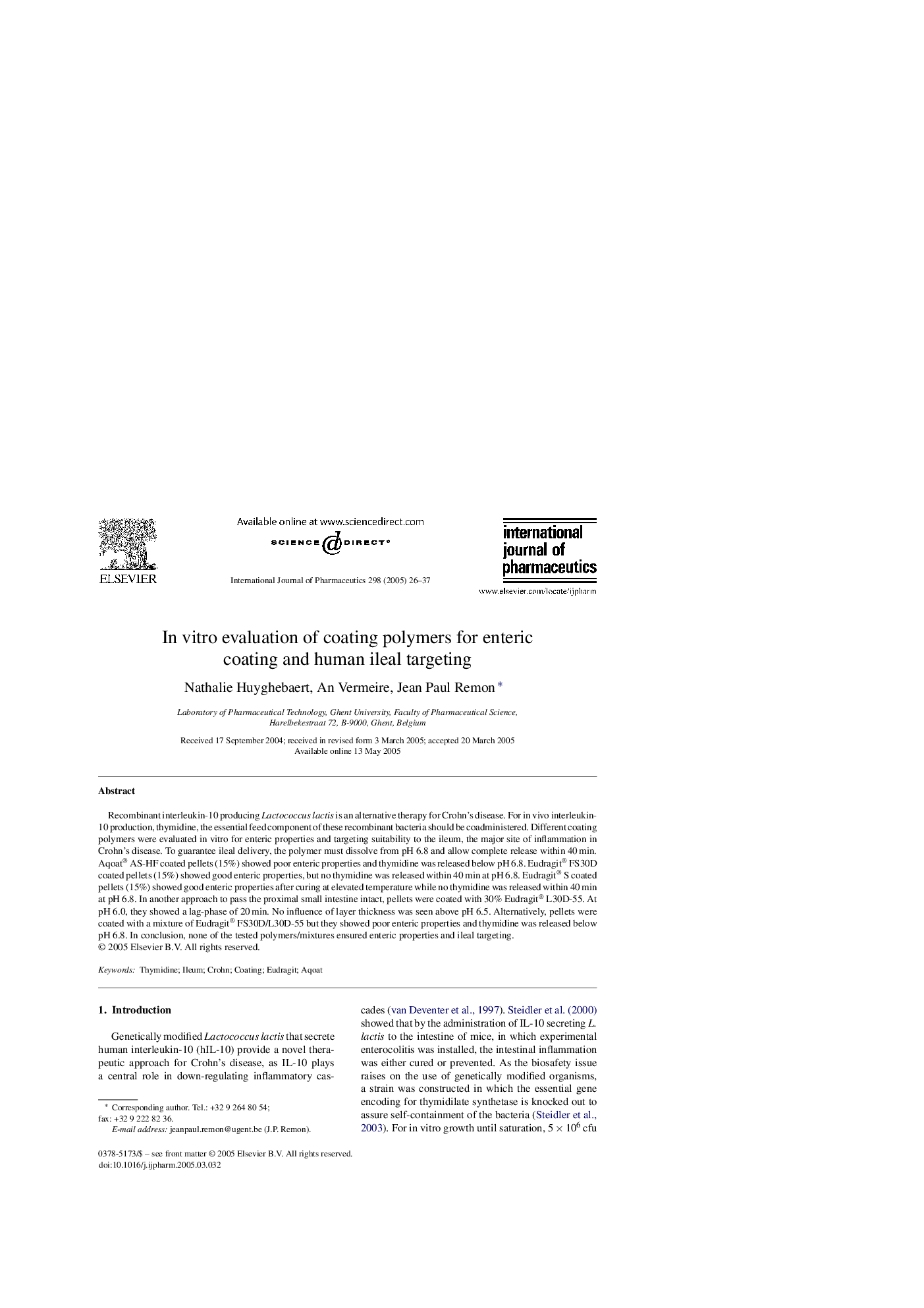| Article ID | Journal | Published Year | Pages | File Type |
|---|---|---|---|---|
| 9918733 | International Journal of Pharmaceutics | 2005 | 12 Pages |
Abstract
Recombinant interleukin-10 producing Lactococcus lactis is an alternative therapy for Crohn's disease. For in vivo interleukin-10 production, thymidine, the essential feed component of these recombinant bacteria should be coadministered. Different coating polymers were evaluated in vitro for enteric properties and targeting suitability to the ileum, the major site of inflammation in Crohn's disease. To guarantee ileal delivery, the polymer must dissolve from pH 6.8 and allow complete release within 40Â min. Aqoat® AS-HF coated pellets (15%) showed poor enteric properties and thymidine was released below pH 6.8. Eudragit® FS30D coated pellets (15%) showed good enteric properties, but no thymidine was released within 40Â min at pH 6.8. Eudragit® S coated pellets (15%) showed good enteric properties after curing at elevated temperature while no thymidine was released within 40Â min at pH 6.8. In another approach to pass the proximal small intestine intact, pellets were coated with 30% Eudragit® L30D-55. At pH 6.0, they showed a lag-phase of 20Â min. No influence of layer thickness was seen above pH 6.5. Alternatively, pellets were coated with a mixture of Eudragit® FS30D/L30D-55 but they showed poor enteric properties and thymidine was released below pH 6.8. In conclusion, none of the tested polymers/mixtures ensured enteric properties and ileal targeting.
Related Topics
Health Sciences
Pharmacology, Toxicology and Pharmaceutical Science
Pharmaceutical Science
Authors
Nathalie Huyghebaert, An Vermeire, Jean Paul Remon,
